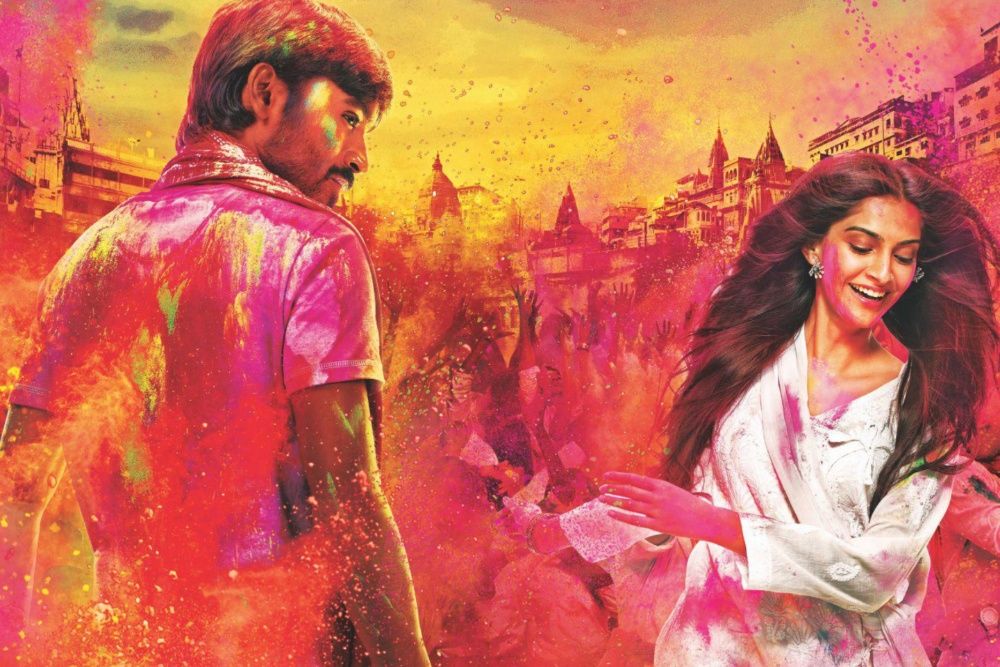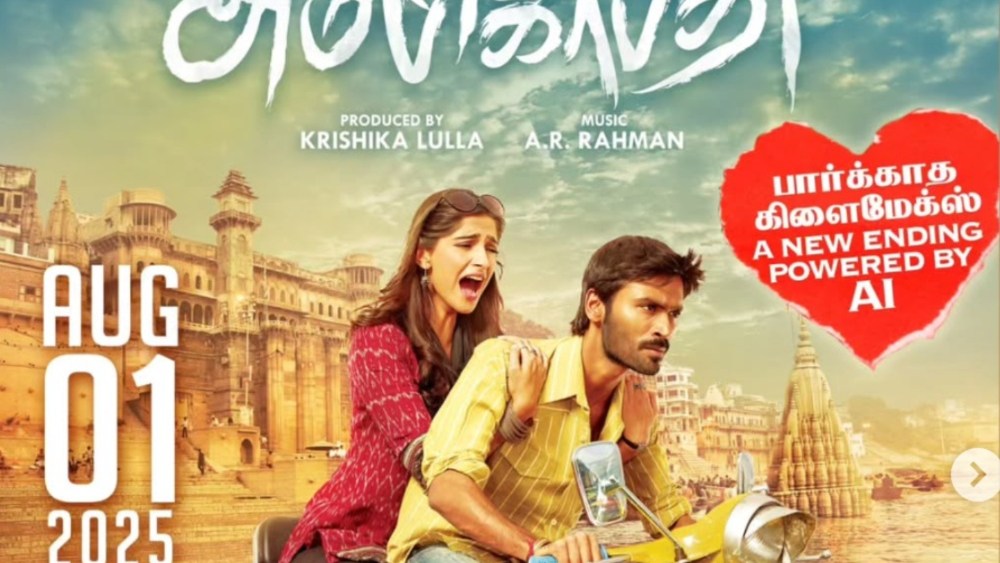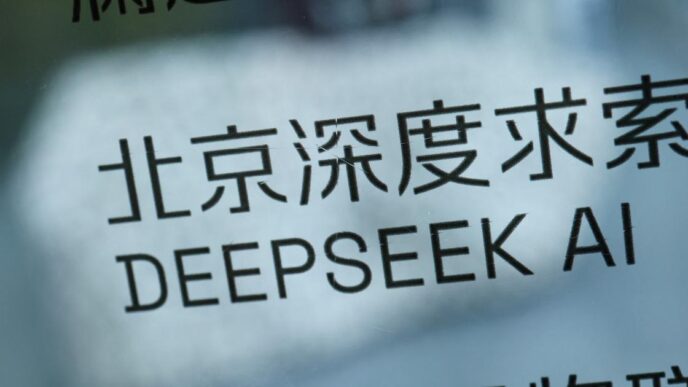Eros International sparks outrage with AI-altered re-release of hit film Raanjhanaa. The Tamil version, Ambikapathy, is set to hit screens August 1, featuring an AI-generated happy ending that reverses the original tragic finale. Director Aanand L. Rai calls it a “deeply troubling precedent” and says it was done without consent.
The issue started when Eros announced the AI tweak, transforming the story’s original ending where the protagonist Kundan dies into one where he survives.
Rai slammed the move:
“The recent announcement about AI-altered, Tamil-language rerelease of ‘Raanjhanaa,’ without the knowledge, consent, or involvement of its makers, sets a deeply troubling precedent.”
“While Eros may, as the studio and producers of the film, hold certain rights, their action disregards the fundamental principles of creative intent and artistic consent.”
Eros CEO Pradeep Dwivedi defended the decision as “a respectful reinterpretation,” saying AI was used as a creative tool with human oversight.
“At Eros, with 4,000+ films produced and distributed globally, we believe the soul of cinema lies not in resistance – but in reinvention,” Dwivedi said in a LinkedIn post.
But the studio’s latest statement accuses Rai of using the controversy to distract from ongoing legal battles.
“We categorically reject and strongly object to the unfounded and sensationalist remarks made by Mr. Aanand L. Rai,” Eros said. It calls Rai’s objections “a deliberate negative PR stunt designed to distract public and industry attention from serious and ongoing legal matters.”
The dispute goes deep, beyond AI edits. Eros claims full rights over the film, including moral rights waived by Rai in contract. Rai counters with Indian Supreme Court precedents that affirm directors’ moral rights, even after economic rights transfer.
Eros is also locked in a legal fight with Rai’s Colour Yellow Productions. A tribunal gave Eros interim protection citing “oppression and mismanagement” claims against Colour Yellow. Rai says the issues are separate.
Dwivedi insists the AI version had full creative supervision.
“All AI-generated content was supervised by a team of human creatives, including editors and storytelling consultants, who worked within predefined thematic and tonal constraints.”
Rai warns this could reshape Indian cinema’s approach to creative rights and consent.
“A film is not just a commercial product; it is a reflection of the vision and labour of those who bring it to life.”
“The use of AI to retrospectively manipulate narrative, tone, or meaning without the director’s involvement… is a direct threat to the cultural and creative fabric we work to uphold.”
Dwivedi says the AI re-release is part of a longer creative strategy, not a reaction to legal trouble, and that original films remain available alongside altered versions.
Eros plans more AI reinterpretations but will weigh projects case-by-case and is building an internal ethics framework.
Rai plans to escalate the matter with industry bodies, equating it to past Hollywood AI controversies.
The fight over Raanjhanaa marks a tense moment as Indian film grapples with AI, artistic rights, and corporate conflicts — a battle that could set the tone for how cinema evolves in the AI era.












